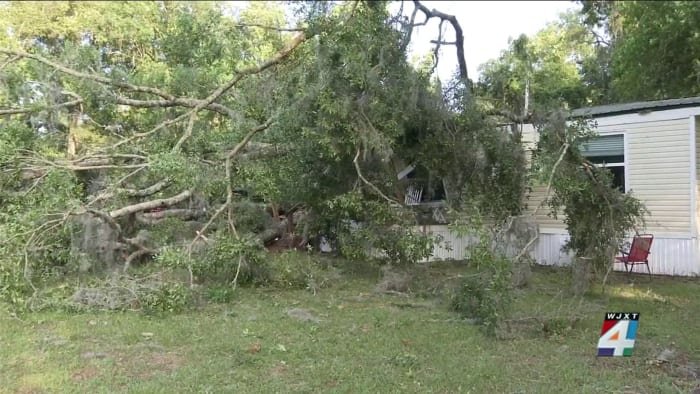
A bill revamping how short-term rentals would be regulated will take center stage Thursday.
ST. JOHNS COUNTY, Fla. — The Florida Senate is set to take up legislation Thursday that could impact your vacation.
A bill revamping how short-term rentals would be regulated, will take center stage. Part of what the legislation would do is weaken local governments’ abilities to regulate them.
“I got to host somebody who’s never seen the ocean this year,” said Jessica Broyles, a short-term rental owner in Vilano Beach.
Broyles says around half the homes on her street are also vacation rentals.
“I think we have six or seven,” Broyles said.
Some people don’t want a short-term rental property as a neighbor, and regulating them remains a hot topic in the Sunshine State. Senate Bill 280 would take some of the regulating power away from local governments. Because of this, Jack Cory, who is representing the city of Jacksonville Beach before the state legislature, opposes the legislation.
“The simplest point is preemption bad, home rule good,” Cory said. “And this bill is a preemption bill, another preemption bill.”
A spokesperson with the city of St. Augustine says the city also opposes the bill, saying it would eliminate their ability to regulate parking and occupancy. Cory gives an example using the Ancient City.
“St. Augustine, as you know, was built before the nation,” Cory told First Coast News. “So, now to try to put vacation rentals in there, where you’re going to stack five or 10 cars like you would at a mini hotel, it’s just very impractical.”
The Northeast Florida Association of Realtors supports the legislation, their CEO saying different rules between cities makes the process confusing for everyone.
Susan Philips, president of the St. Augustine, Ponte Vedra and the Beaches Visitors and Convention Bureau, believes parts of the bill would help local governments, including a part that would make changes to advertising and could result in localities receiving more money in bed taxes due to accountability.
“A lot of that money goes back into infrastructure,” Philips said about bed taxes. “It’s for beach renourishment, it’s for the tourism marketing that we do. So, it’s a benefit to the people here in the local community. And you really want to have, again, a level playing field. You want everyone to be following the same rules.”
Broyles says she hopes whatever the end result is, it’s something everyone can agree on.
“I just think there has to be a balance,” Broyles said. “It shouldn’t be totally all business, totally all residents. We just have to work together as a team and come up with what’s best for everybody.”







